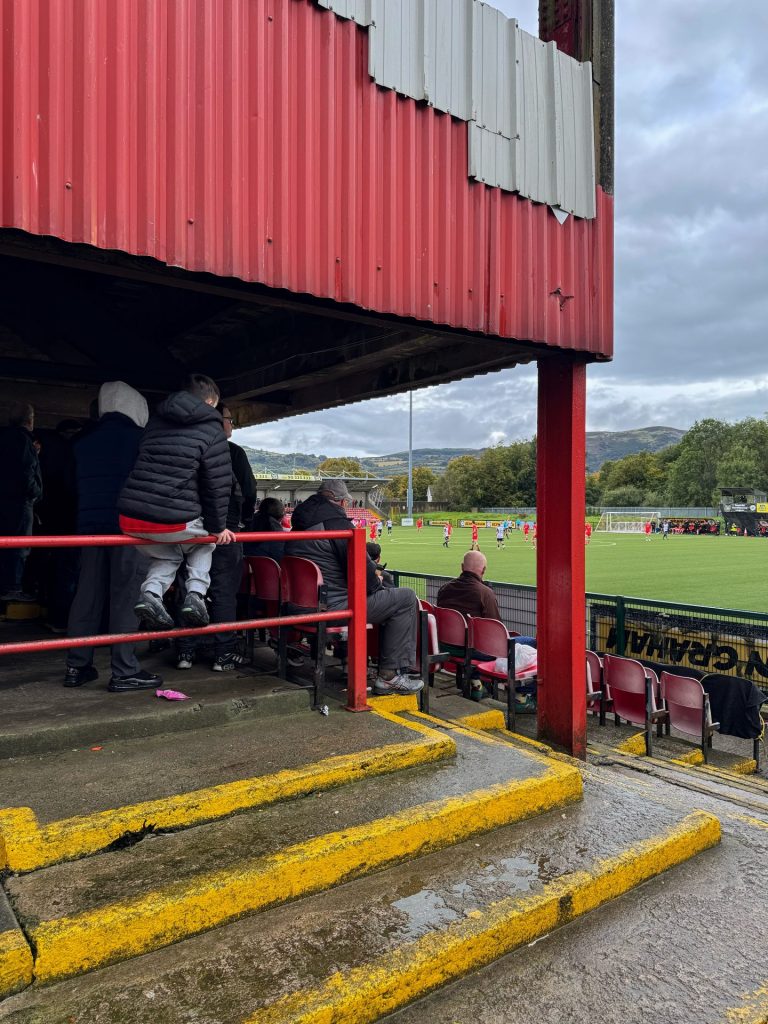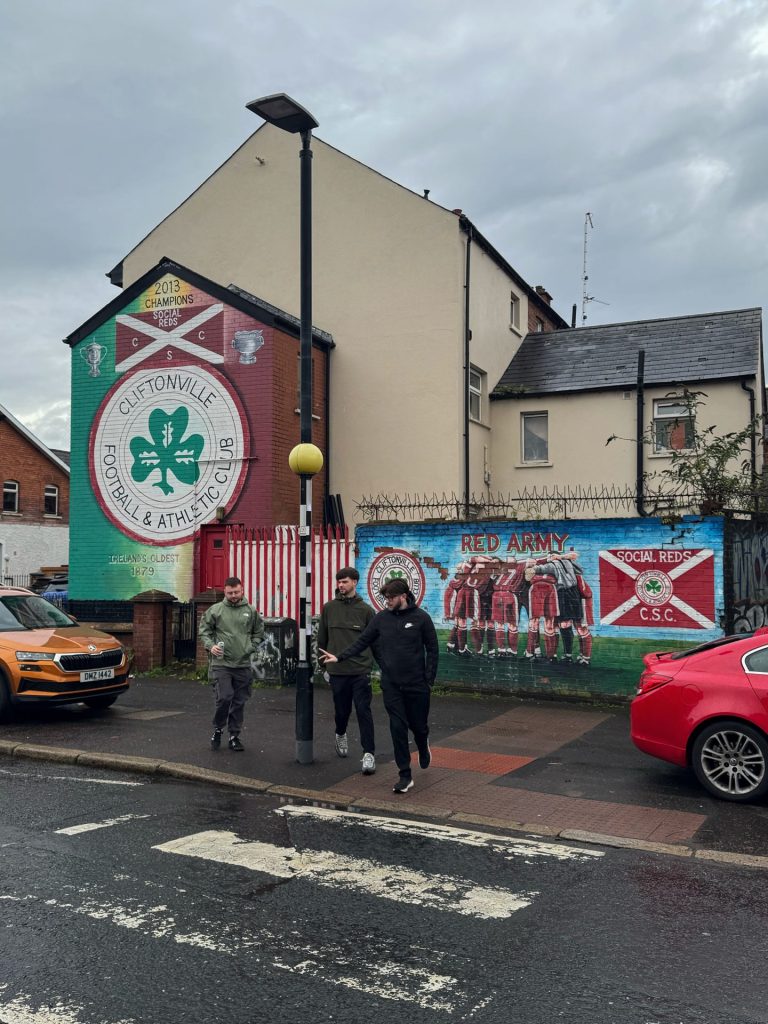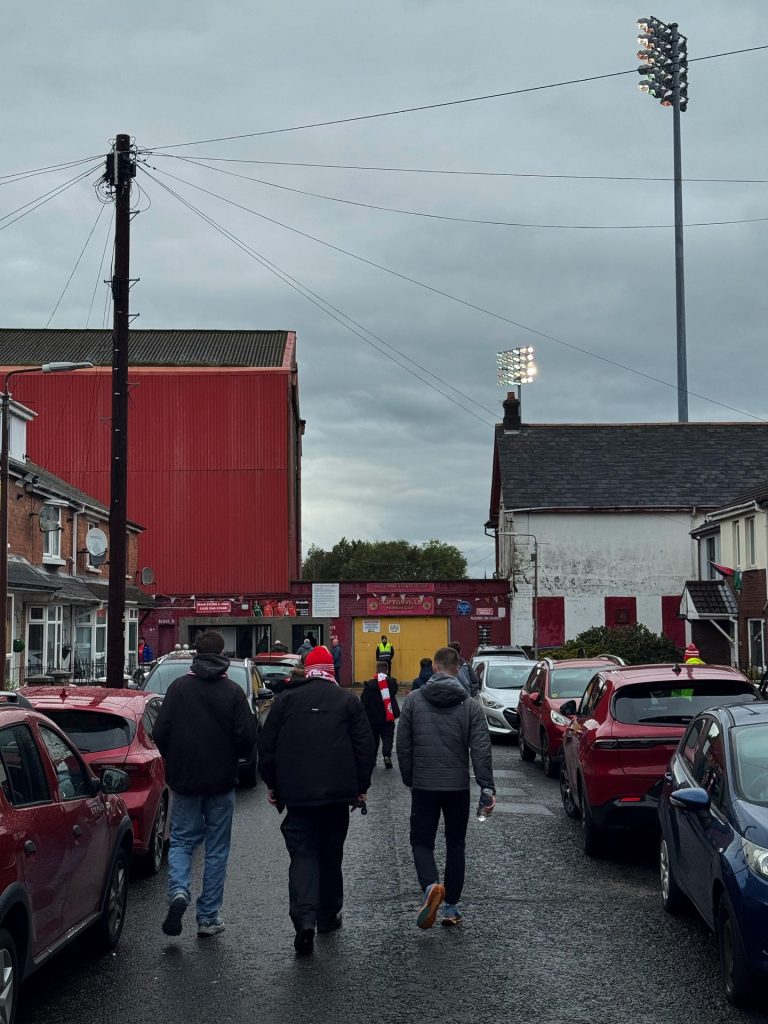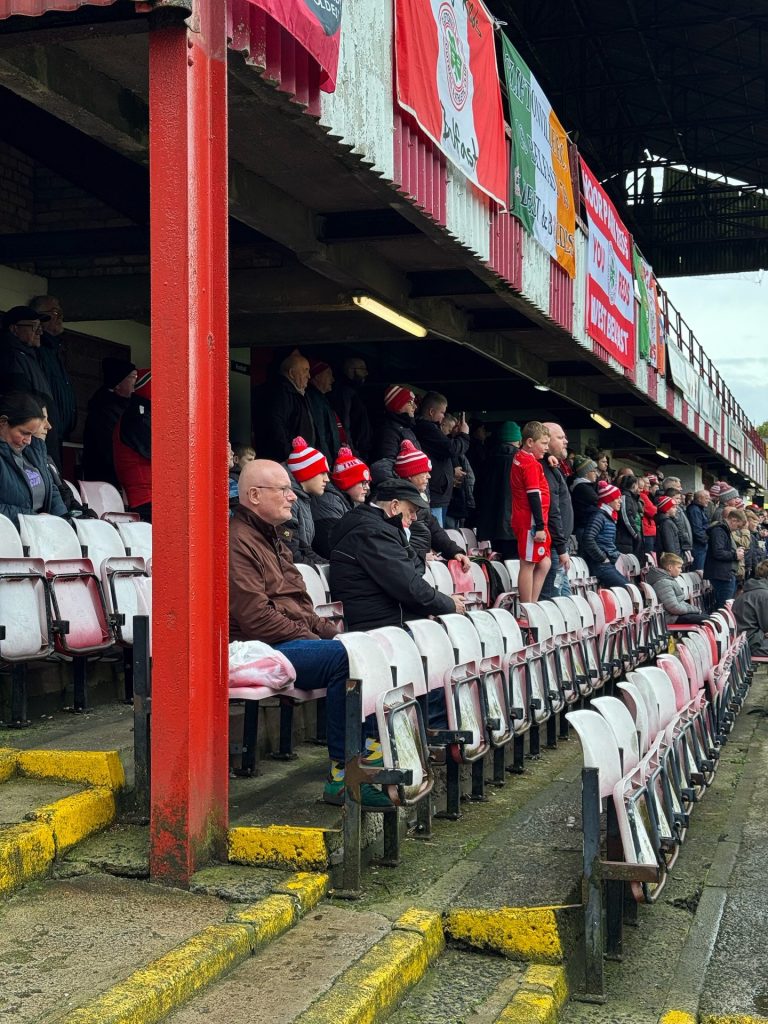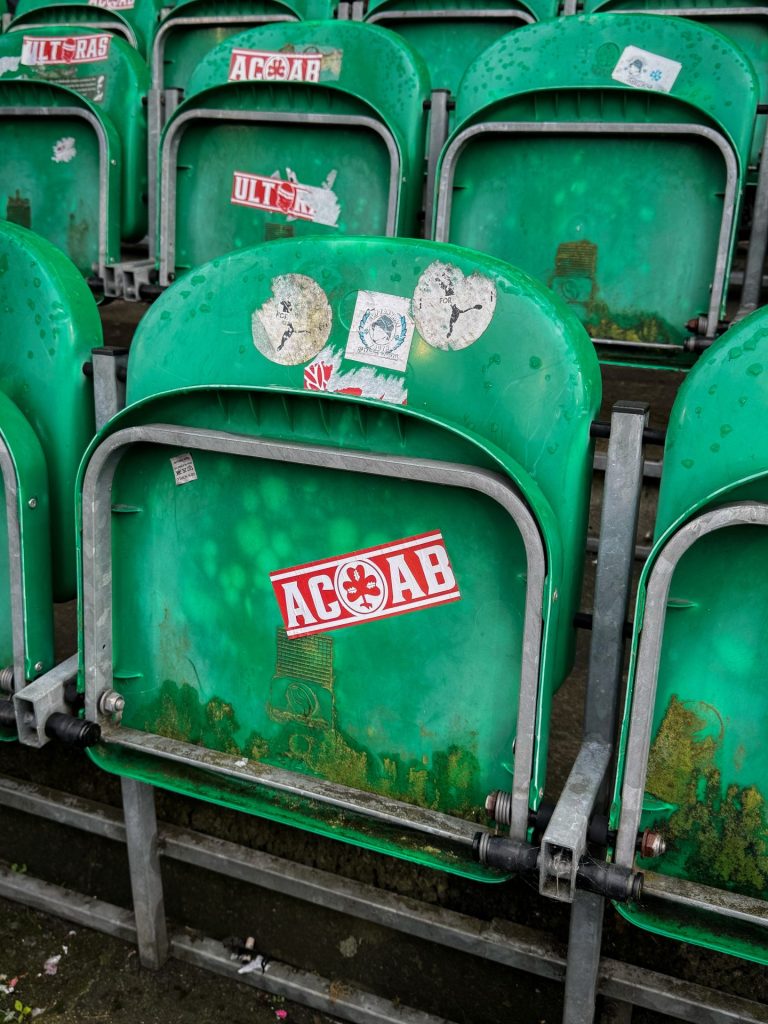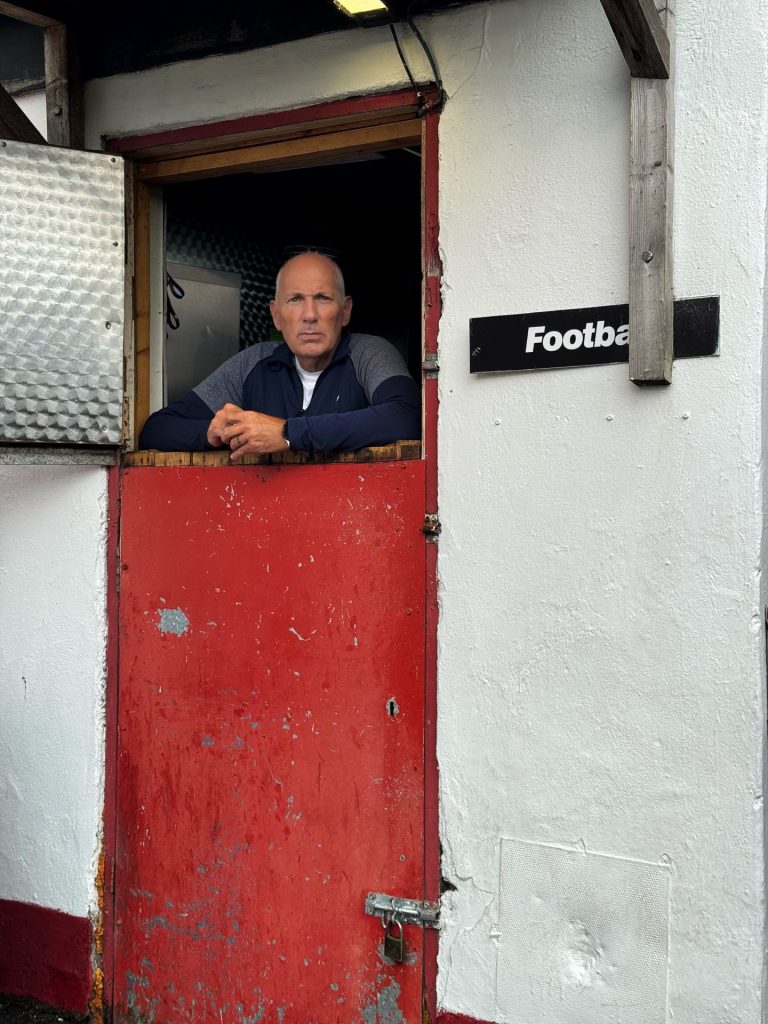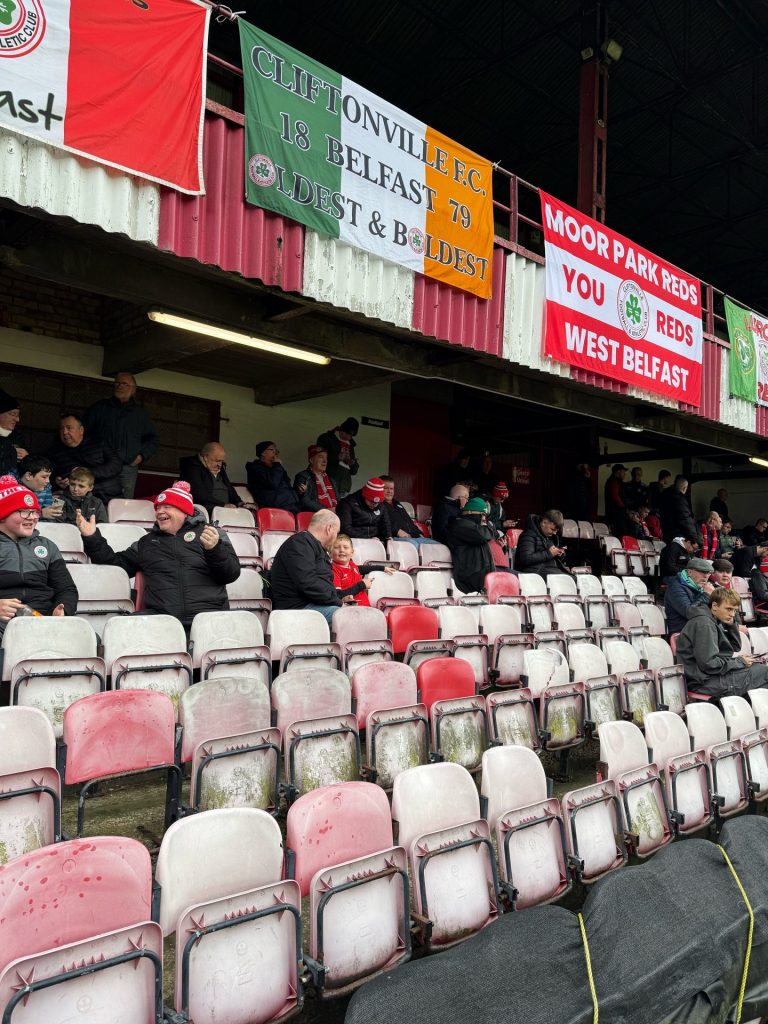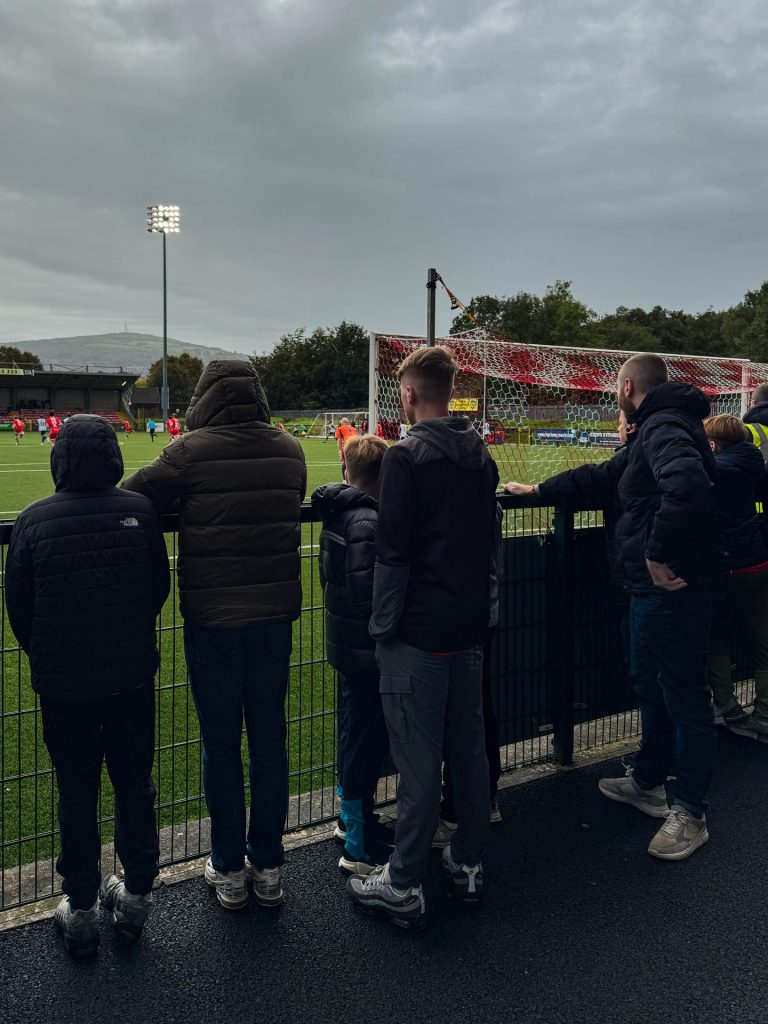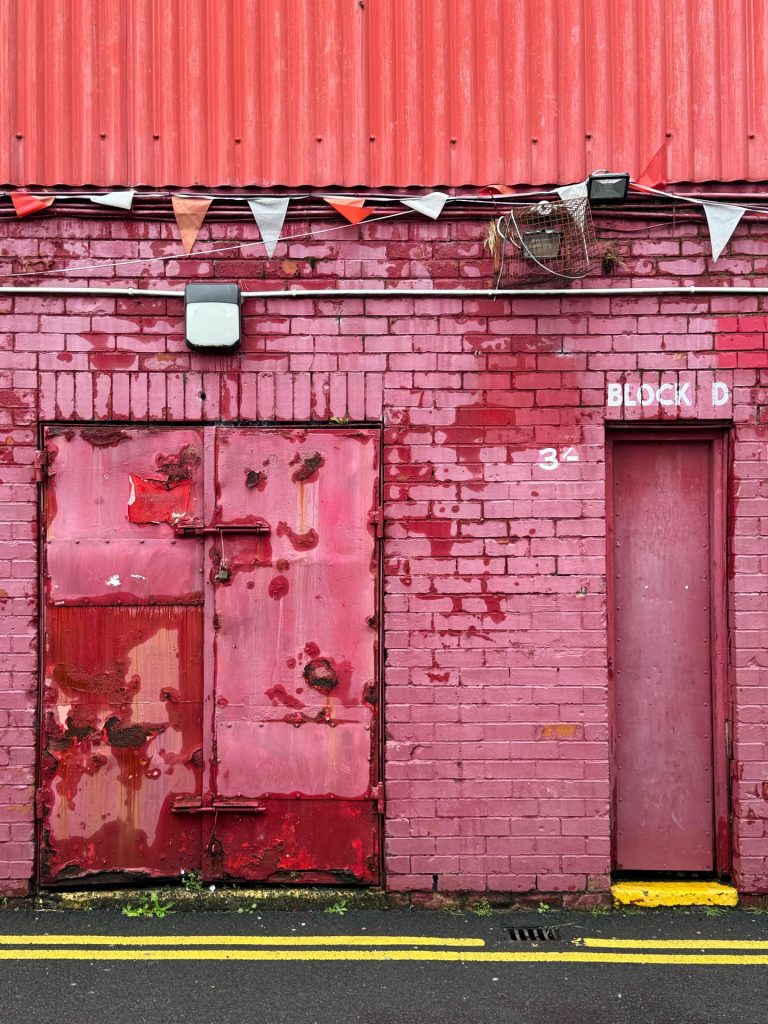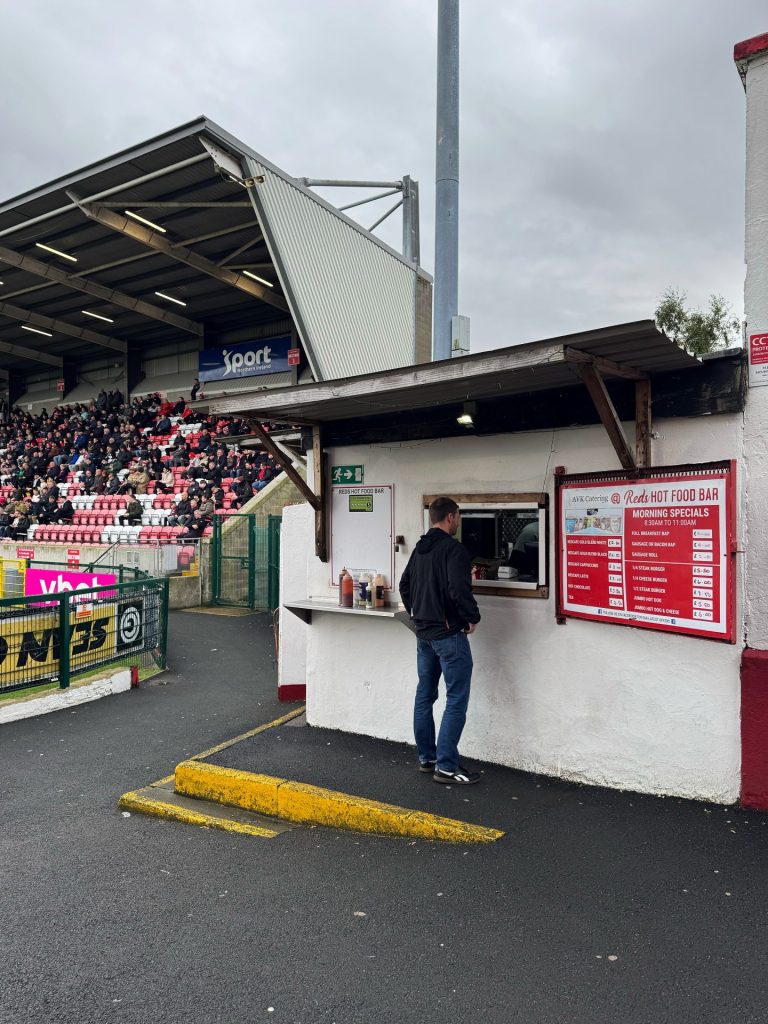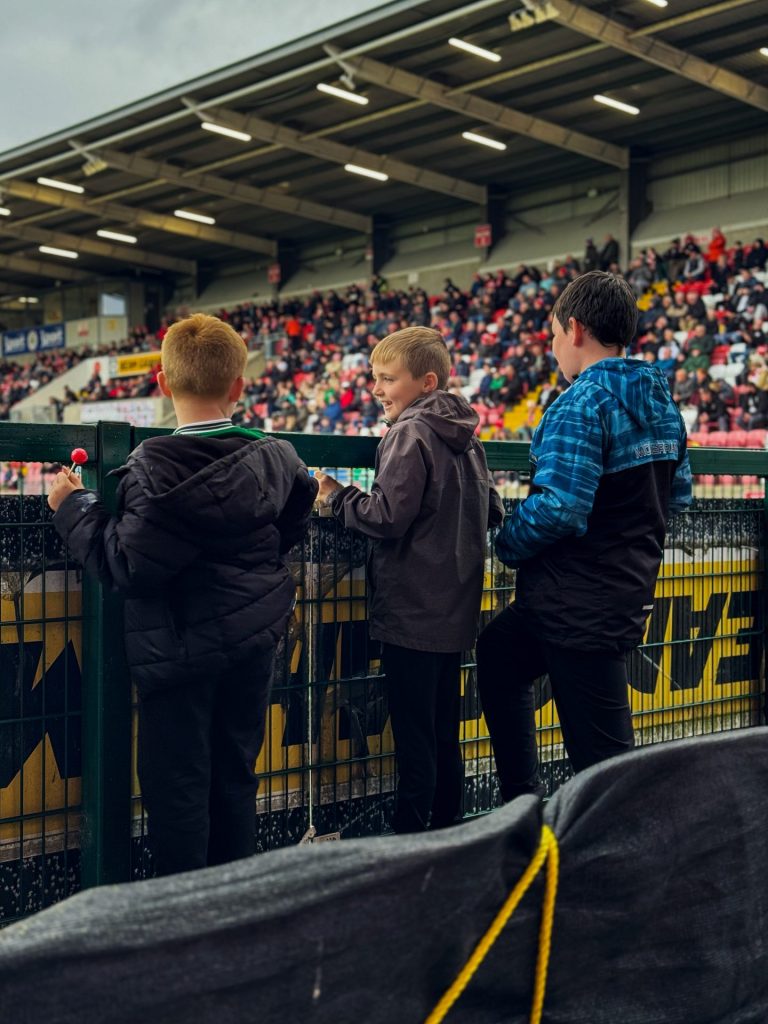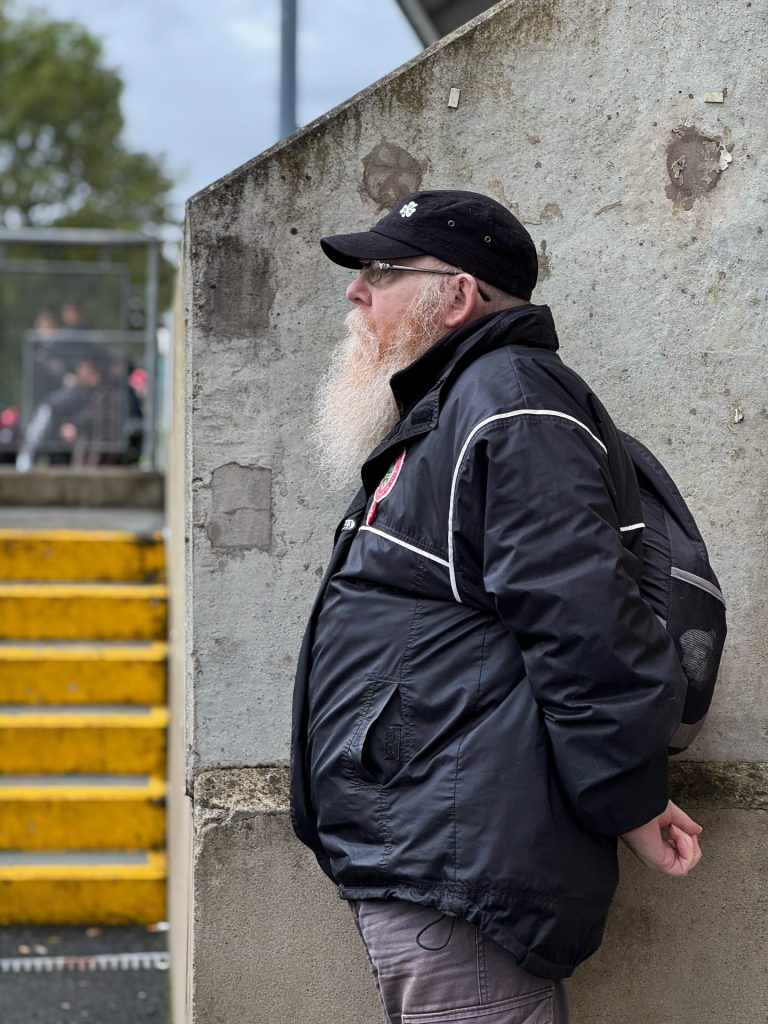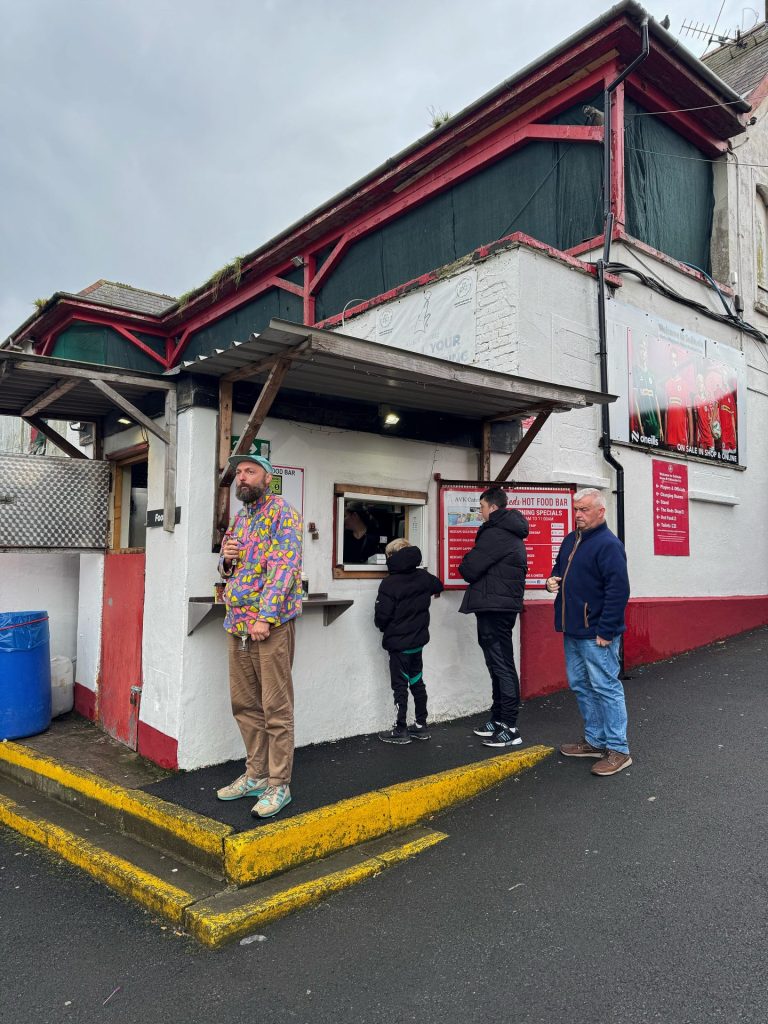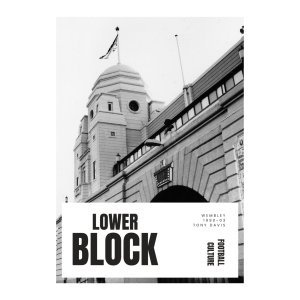Cliftonville FC, founded in 1879, stands as the oldest football club on the island of Ireland, carrying a history that is inseparable from the city around it. Its home ground, Solitude, opened in 1890 in North Belfast, is a relic of another footballing age: wedged between terraced streets, modest in structure, and rich in lived experience. The ground’s three stands – two modern, one a mid-20th-century survivor – frame a pitch that may be synthetic, but everything surrounding it feels resolutely human. On matchdays, Solitude fills with a blend of generations: older supporters who have lived through decades of change and younger fans carrying the club’s identity forward. The atmosphere reflects the community that sustains it – close-knit, spirited, shaped by the social and political history of the area, yet welcoming in its simplicity. Solitude remains a reminder that football’s power often lies not in spectacle, but in authenticity and belonging.
Photographer Guirec Munier captures this world with an outsider’s clarity, and his words trace the unexpected detour that led him to Solitude and into the heart of Cliftonville’s matchday spirit.
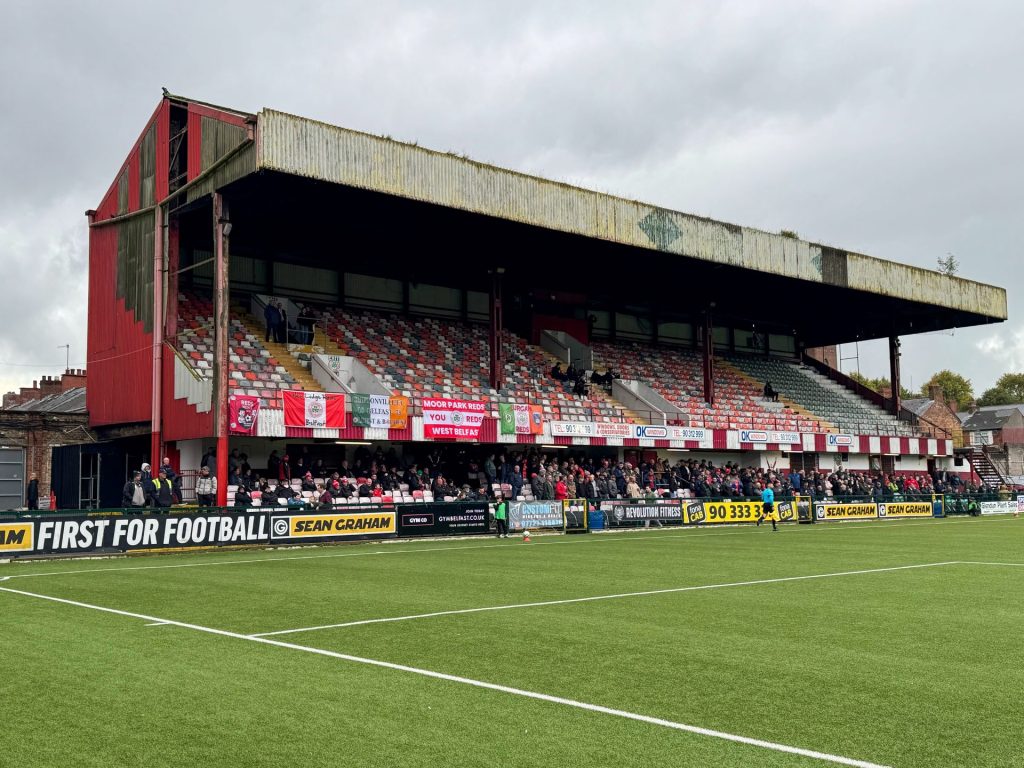
Every romantic relationship has its own story, its own journey; some follow a straight line, while others take winding paths. My love at first sight with Cliftonville FC should never have happened.
“On September 27th, shortly after 2 p.m., I was walking up Yukon Street in East Belfast, heading towards The Oval. I’d been planning on going to a Glentoran game for about a year before the stadium’s complete redevelopment.
Despite the gloomy weather, and the continuous rain since 9 a.m., I was dying to be there. Then, 0.1 mile from the promised land, a Glentoran supporter walking in the opposite direction informed me that the match had been postponed due to the unplayable pitch. Naturally, my first reaction was to take the blow. The ultimate goal of my trip had just gone up in smoke. What to do now? Dwell on it or try to come up with a plan B at top speed? A quick search of the NIFL Premiership calendar and in a matter of seconds, I decided to explore Solitude, the oldest stadium in Ireland.
About twenty minutes later, I found myself at the corner of Oldpark Avenue and Cliftonville Road. In the distance, the reddish corrugated iron facade of the Main Stand immediately appealed to me. Nestled among the terraced houses, Solitude is perfectly imperfect. Authentic, in the best sense of the word.
Ten minutes before kickoff, the sweet smell of a peat fire hung in the air and the last supporters were making their way up Cliftonville Road and into the stadium through narrow turnstiles. Built in 1890, Solitude consists of only three stands, two of which are fairly recent, and a third partially enclosed, dating from the 1950s. The pitch is made of plastic, but the atmosphere is not.
Supported today by Catholic supporters with left-wing republican beliefs, Cliftonville FC is holding their own in the Northern Irish top flight. This spirit, forged in adversity, permeates the stadium’s stands. The atmosphere is communal. Solitude is a kind of open-air pub. Oldest club in Irish football, Cliftonville FC cultivates its roots and it’s a beautiful thing to experience.“
